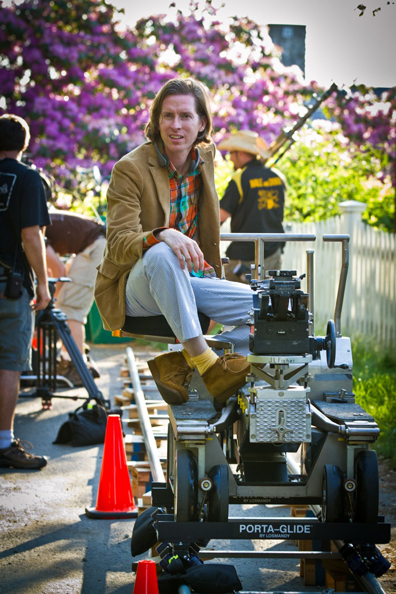While asserting that each one of his seven films has a unique fingerprint, writer/director Wes Anderson likes to entertain the thought that, in some small way, all the fictional creations he’s brought to life over his eighteen year career might somehow be interconnected. “I always thought that the characters from any movie that I’ve done could enter into another movie that I’ve done,” he says, pondering the idea that in some alternate universe might exist where Rushmore’s precocious high school student Max Fischer might have penned The Life Aquatic, or The Royal Tenenbaums’ morose playwright Margot could have found love on The Darjeeling Limited. “There’s sort of a tone of voice about these characters, they might fit together…There’s sort of a single universe, even though each of these movies, my goal is to make them each have their own kind of world. I have a feeling they’re connected together just by the limitations of my own imagination.”
For his newest project, Anderson’s imagination took him to a rural island off the New England coast in the year 1965. That date, initially included on a whim, turned out to dramatically alter the film’s focus. The story of a young boy and girl who fall in love and run away on a camping trip populated with rogue Boy Scouts, lonely rangers, and unconventional family units, Moonrise Kingdom is set in an America that has long since come and gone. Anderson sees its tone—which shares DNA with the likes of classic coming-of-age films such as 400 Blowsand Stand By Me—as a direct reflection of the time period. “When these kids are eighteen, it’s going to be a very different time in our country,” he says, alluding to political and social upheaval that came with the end of the decade. “The end of their childhood, the end of the summer, the end of all these different things at once.”


No comments:
Post a Comment